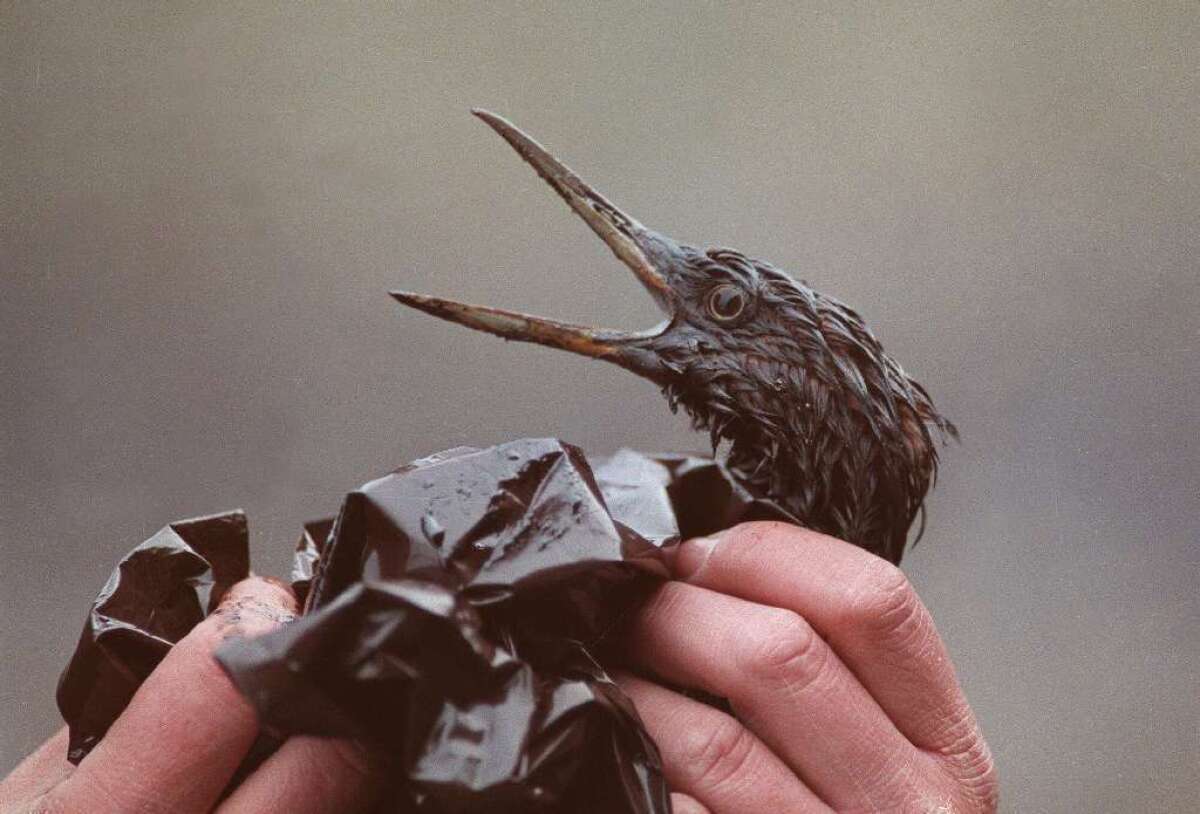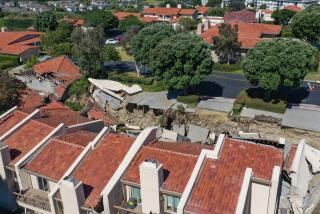25 years later, have we learned anything from the Exxon Valdez?

- Share via
Some lessons take a long time to sink in. The Exxon Valdez disaster, which occurred 25 years ago this week when the oil tanker struck a reef in Alaska’s Prince William Sound, was both the product of previous lessons unlearned and the source of new lessons that continue to be overlooked.
One lesson was that industry self-regulation and lax governmental oversight don’t work to the public’s benefit. In this case, the vessel was operating on March 24, 1989, with an overworked crew that was half the size of standard crews 20 years earlier; the tanker’s hull construction didn’t meet specifications agreed to by the oil industry for tankers carrying Alaskan oil. The Coast Guard, which was charged with conducting safety inspections of tankers, didn’t do so because its staff had been cut by one-third.
The environmental effects of the spilled oil in what was then the largest ever in U.S. waters--it was surpassed by the 2010 Deepwater Horizon spill in the Gulf of Mexico--have been worse and longer lasting than anyone anticipated.
As NPR recently reported, “Scientists had traditionally believed that oil basically had to cover an animal or embryo to hurt it. But the evidence they saw in Alaska suggested it didn’t take much oil to do a lot of damage.” Herring populations crashed, and those of orcas, sea otters and ducks suffered for years. The otter population has finally recovered, 25 years later.
The most disturbing aspect of the case may be the solicitude shown to its perpetrator, Exxon, by the courts. An Alaska jury had slapped the company with $5 billion in punitive damages awarded to 30,000 residents and workers whose livelihoods were harmed or destroyed by the spill. Exxon appealed, and got the award cut in half by a federal appeals court.
The company appealed again to the U.S. Supreme Court, which in 2008 cut the remaining award to about $500 million based on its interpretation of maritime law. As my colleague David Savage observed at the time, the company could cover that sum with four days of profits. Exxon, in its defense, said that it had already spent $3.5 billion in cleanup costs and compensation to victims.
In many ways the Deepwater Horizon blowout feels like a replay--one that’s still unfolding. Safety and equipment standards were flouted; regulatory oversight was compromised. The oil industry has tried to downplay the potential damage from the released oil, but the experience of Prince William Sound suggests that the full toll won’t be known for years, even decades.
And BP, the company bearing responsibility for the offshore platform, is already moving heaven and earth to minimize its payout for the damage. Earlier this month, the federal government lifted a ban preventing BP from bidding for new oil leases in the gulf. Fans of the company celebrated this important step in its recovery from the disaster. But how long will it take the victims to recover?
More to the point, which of the lessons from the Deepwater Horizon that the oil industry claims to have taken to heart will be found to have been ignored, the next time there’s a major spill?
More to Read
Sign up for Essential California
The most important California stories and recommendations in your inbox every morning.
You may occasionally receive promotional content from the Los Angeles Times.














